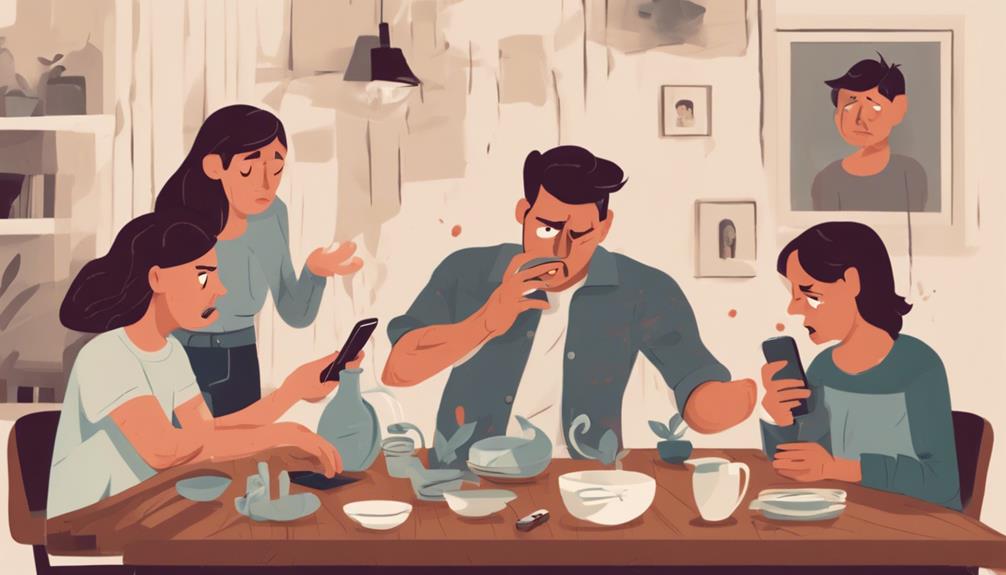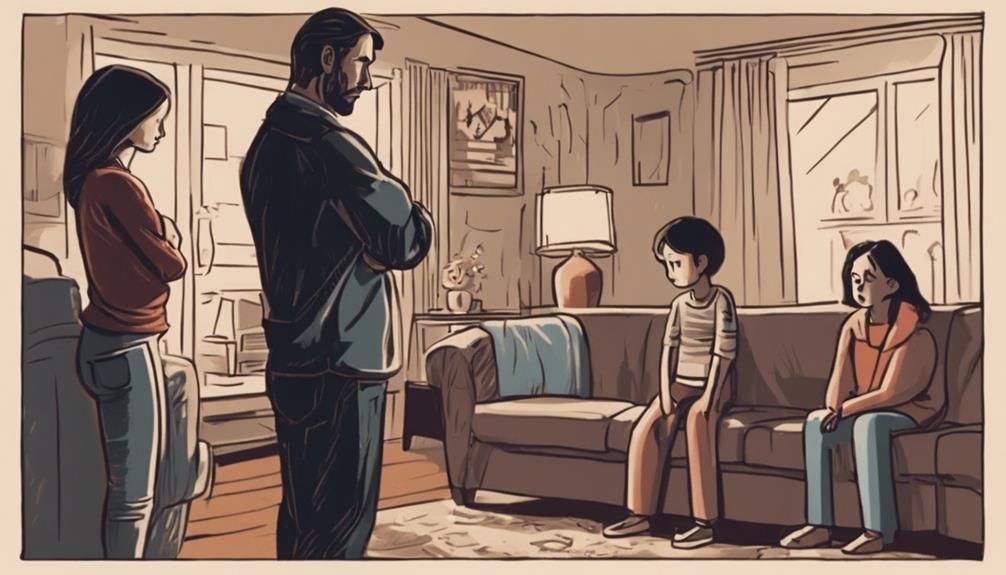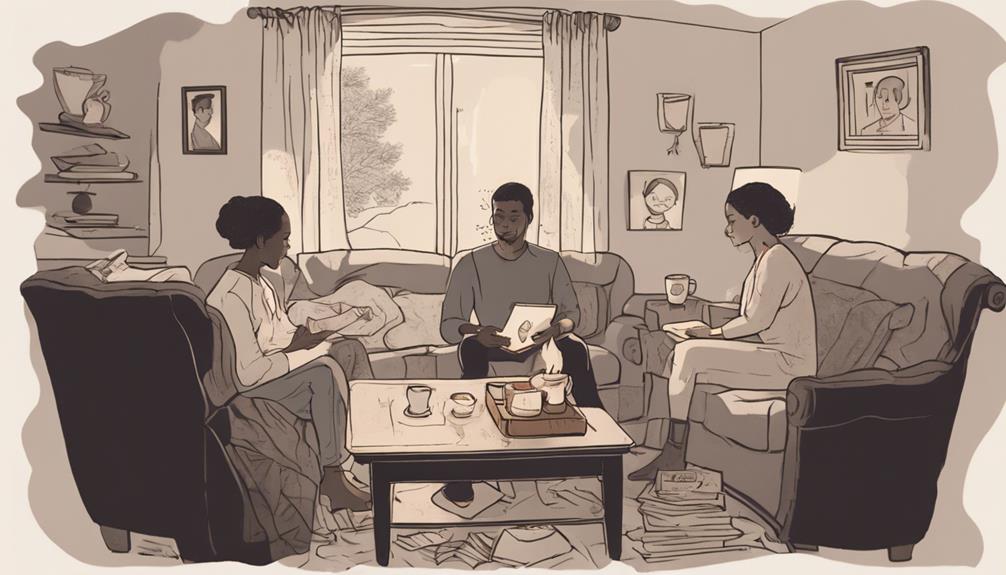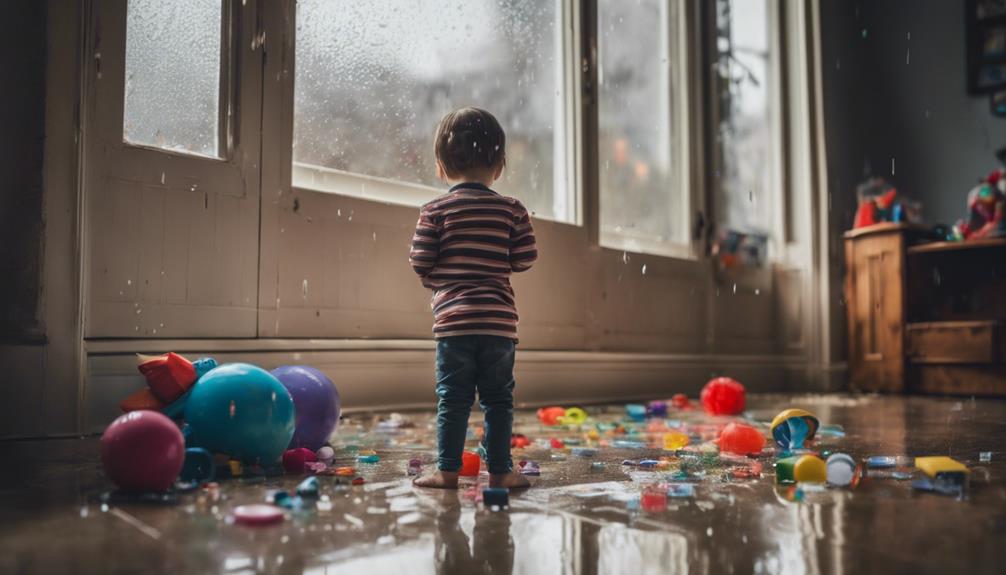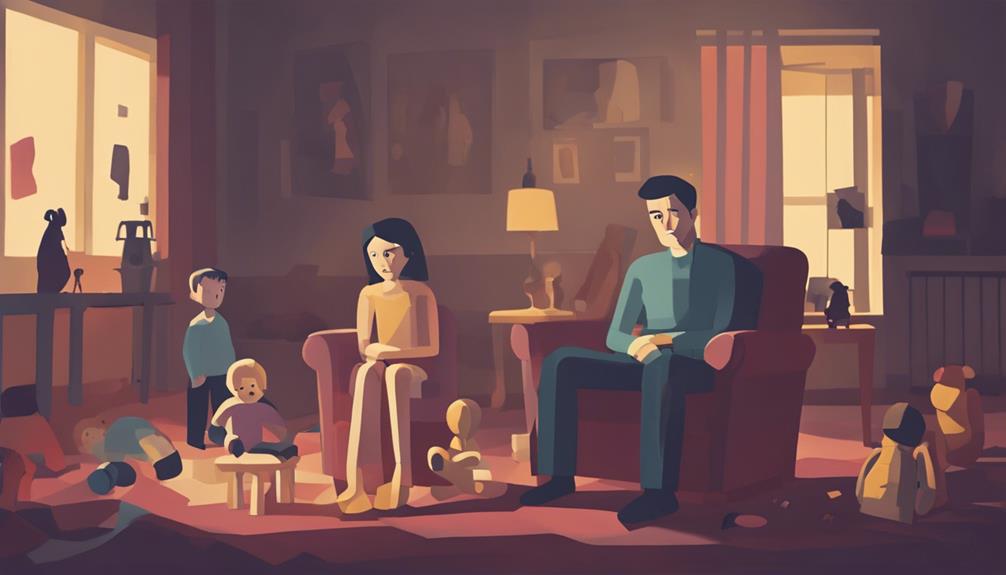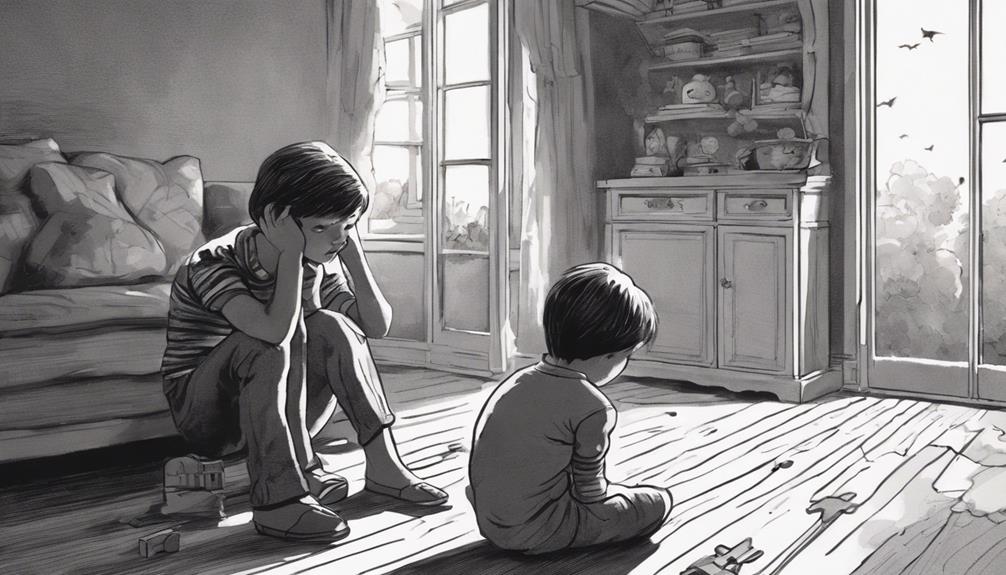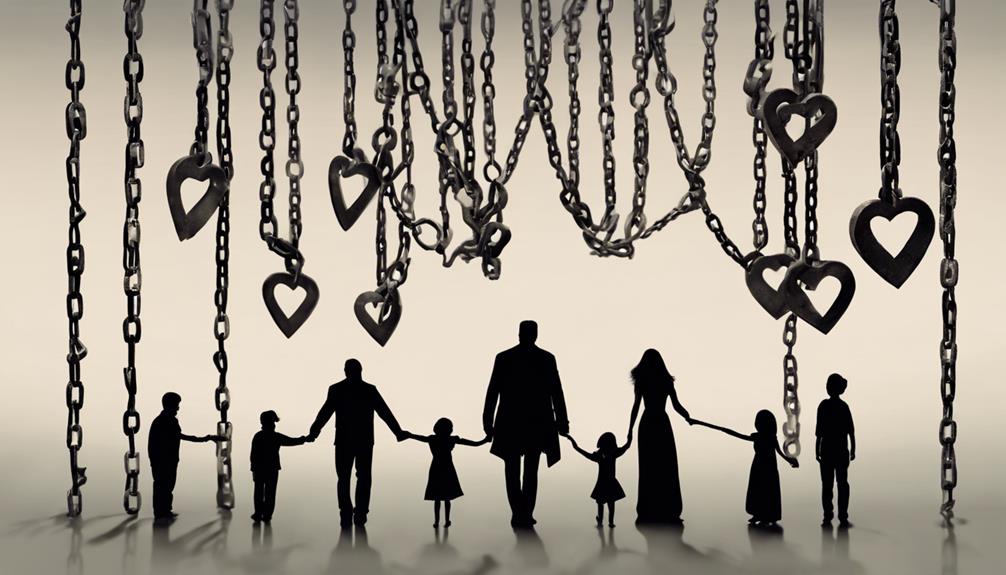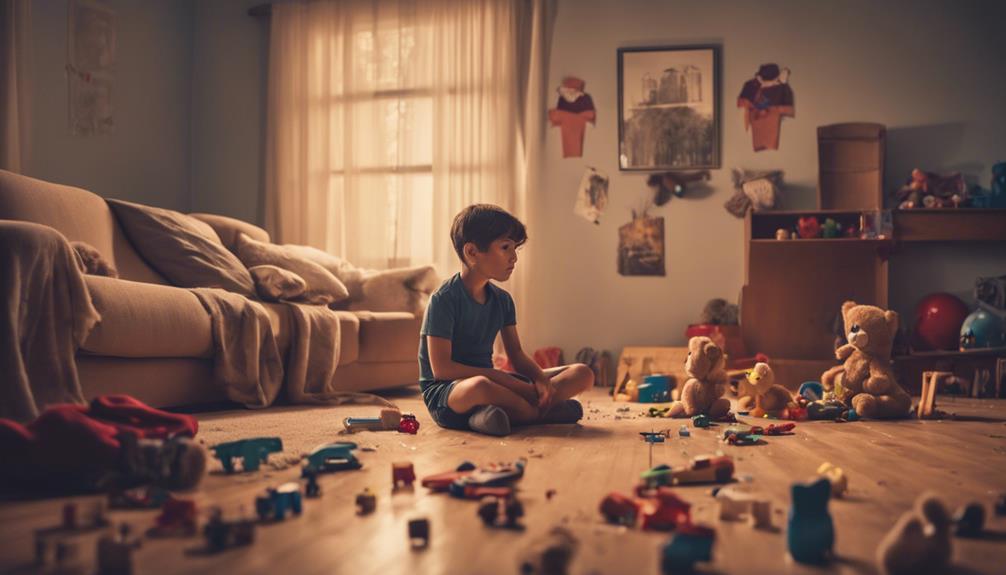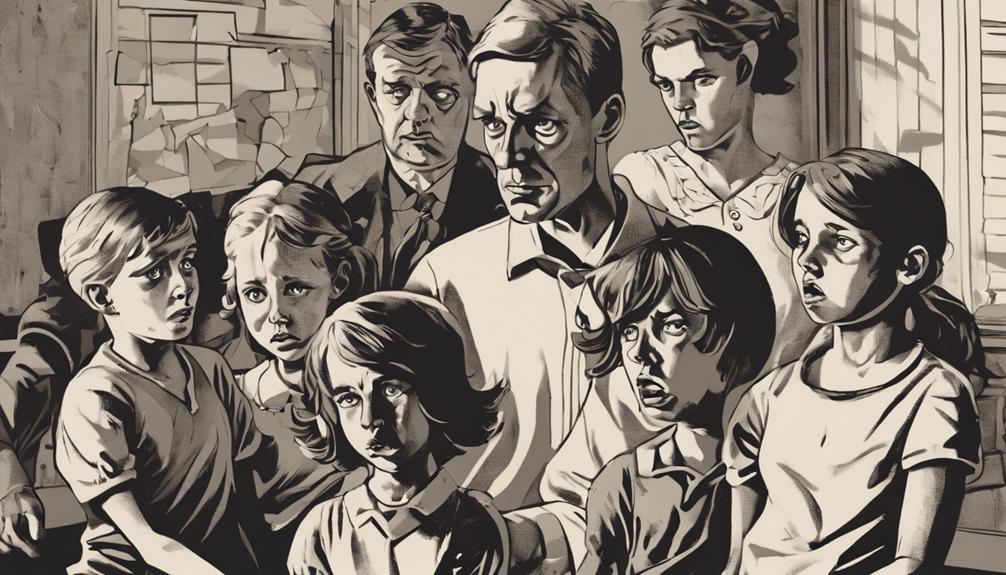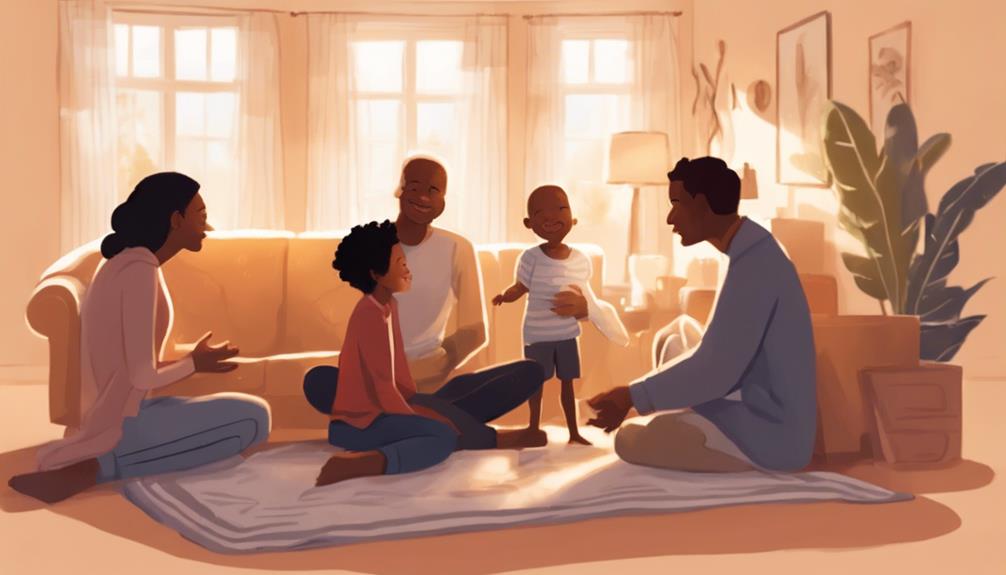As societal norms evolve, your understanding of extramarital affairs can shift considerably. Exploring historical contexts reveals how culture and gender roles influence perceptions. Today's technology and social media blur the lines of fidelity, presenting new challenges for trust and intimacy. Mental health plays an essential role, often guiding individuals toward or away from infidelity as they seek emotional connection. Legal implications can complicate matters further, impacting everything from divorce to custody. By recognizing these dynamics, you'll find healthier ways to address and discuss fidelity. There's more to uncover about these insights that can inform your understanding.
Historical Context of Infidelity

Throughout history, infidelity has been a complex issue, often reflecting societal norms and personal struggles that you might find surprisingly relatable.
Historical attitudes towards infidelity vary considerably across cultures and eras. In many societies, extramarital affairs were often acceptable for men, while women faced severe social stigmas. This disparity reveals deep-rooted societal norms that shaped the way individuals navigated their relationships.
You may notice that during certain periods, infidelity was almost glamorized, celebrated in literature and art, while in others, it was condemned as a moral failing. These shifting perspectives often mirrored broader societal changes, such as the rise of individualism or the quest for gender equality.
Understanding these historical attitudes can provide valuable insights into the complexities of modern relationships. You might find it helpful to reflect on how these legacies influence your perceptions and experiences today.
While infidelity can cause pain and confusion, recognizing its historical context helps you navigate personal struggles with empathy and clarity. Ultimately, it's important to acknowledge that every relationship is unique, shaped by both personal choices and the echoes of history that continue to influence our views on fidelity.
Changing Gender Roles
As societal norms evolve, the changing gender roles have significantly impacted perceptions of infidelity and the dynamics within relationships. In the past, rigid gender expectations often dictated how men and women approached fidelity. However, today's evolving norms have led to a more nuanced understanding of relationships, where both partners can express their needs and desires openly.
You might notice that as traditional roles shift, the stigma surrounding infidelity has also changed. It's no longer just men who are seen as the primary offenders; women are increasingly viewed through a lens of agency and empowerment. This shift allows for more honest conversations about what infidelity means in your relationship, regardless of gender.
Furthermore, understanding that both partners can navigate their own desires and boundaries can create a healthier dynamic. Instead of blaming one partner, consider how societal expectations have influenced behavior. By fostering open communication and mutual respect, you can work together to redefine your relationship's parameters.
As you reflect on these changing gender roles, remember that compassion and understanding are essential in addressing infidelity. Embracing these evolving norms can ultimately lead to stronger, more authentic connections.
Impact of Technology

Steering relationships in the digital age means recognizing how technology can blur the lines of fidelity, often complicating trust and intimacy in unexpected ways. With the rise of online dating platforms, you're confronted with new opportunities that can challenge the commitment you share with your partner. While these apps can foster connections, they can also create temptations that lead to emotional or physical affairs.
Privacy concerns add another layer of complexity. You might find yourself questioning what your partner is doing online, or feeling insecure about their interactions in digital spaces. This constant scrutiny can erode trust and intimacy, making it harder to maintain a solid emotional foundation.
It's essential to communicate openly about boundaries and expectations regarding technology use. Sharing your feelings can foster a more supportive environment, helping both of you navigate these challenges together.
Instead of viewing technology as a threat, consider it an opportunity to strengthen your relationship through honest conversations. By addressing the potential pitfalls and actively engaging in dialogues about fidelity, you can cultivate a healthier, more resilient partnership in this tech-driven world.
Cultural Differences in Perception
Technology's role in relationships isn't just about the tools we use; it also reflects and amplifies the diverse cultural perceptions of fidelity and commitment that vary widely across different societies.
As you navigate the complexities of extramarital affairs, it's crucial to recognize how cultural taboos and societal norms shape relationship expectations.
In some cultures, infidelity might be met with severe social repercussions, rooted deeply in moral values and religious beliefs. In others, regional variations might allow for a more lenient view, often influenced by changing societal dynamics. These differing perspectives can elicit strong emotional responses, affecting how individuals engage with and understand extramarital relationships.
You may also face privacy concerns that complicate these issues further. For instance, in cultures where public scrutiny is prevalent, the fear of being judged can heighten the emotional stakes.
Recognizing these cultural differences can foster empathy and understanding, helping you approach discussions about fidelity with sensitivity. By acknowledging these complexities, you can better navigate your own feelings and those of others, ultimately leading to healthier relationships grounded in mutual respect.
The Role of Mental Health

Mental health plays a significant role in how you perceive and engage with extramarital affairs, influencing emotional responses and decision-making processes in complex ways. If you're struggling with emotional well-being, you might find yourself more susceptible to the allure of an affair, viewing it as an escape from your current emotional landscape. Awareness of your mental state is vital; it helps you understand why you're drawn to certain behaviors and how they affect your relationships.
Engaging in relationship counseling can provide you with the tools to explore these feelings more deeply. A counselor can help you identify underlying issues, such as unresolved trauma or unmet needs, that may contribute to your actions. This supportive space encourages self-reflection, allowing you to make more informed choices about your relationships.
It's also essential to recognize that mental health struggles can lead to cycles of guilt and shame after engaging in an affair. By focusing on your emotional well-being, you can break these cycles and work toward healthier relationship patterns. Prioritizing your mental health not only benefits you but also enhances your capacity for empathy and connection with your partner.
Infidelity and Relationship Dynamics
Infidelity can dramatically reshape the dynamics of a relationship, often leading to a complex web of emotions and challenges that require careful navigation. When you experience emotional betrayal, it's not just about the act itself; it's about the feelings of hurt, anger, and confusion that follow.
You may find yourself questioning your partner's intentions and your own self-worth, which can be overwhelming.
Trust rebuilding is vital in the aftermath of infidelity. It's important to engage in open conversations where both partners can express their feelings honestly. This process isn't easy and often takes time.
You need to determine what went wrong and identify the underlying issues that led to the affair.
Social Media Influence

Social media can greatly impact relationships by creating new avenues for connection but also increasing the risk of misunderstandings and emotional distance. You might find that platforms designed for sharing can sometimes blur the lines between friendship and something more. The allure of digital intimacy often leads individuals to engage in conversations that mightn't occur face-to-face, opening doors to emotional connections that can be misinterpreted or escalate.
When you share personal moments online, it can foster a sense of closeness with others, yet it may also create feelings of jealousy or insecurity in your partner. You might notice that casual interactions can quickly spiral into deeper emotional entanglements, especially if they fulfill needs that you feel aren't being met in your primary relationship.
As you navigate this landscape, it's vital to communicate openly with your partner about your online interactions. Establishing boundaries around social media use can prevent misunderstandings and reinforce trust.
Legal Implications and Consequences
While managing the emotional complexities introduced by social media, it's also important to understand the legal implications and consequences that can arise from extramarital affairs. Infidelity can considerably impact divorce proceedings, often leading to contentious custody battles and heightened emotional distress for everyone involved.
Depending on your location, infidelity laws may influence the division of assets and alimony, resulting in substantial financial repercussions. If your spouse can prove infidelity, it might affect their claims during the divorce, leaving you vulnerable to a more unfavorable settlement.
Moreover, societal stigma around affairs can amplify feelings of shame and isolation, complicating your emotional recovery. You might face judgment from friends and family, adding to the stress of an already difficult situation. Understanding the legal landscape can empower you to make informed choices.
If you're traversing this challenging path, consider seeking legal advice to grasp your rights and responsibilities fully. You deserve support as you work through the ramifications of your choices, both legally and emotionally.
Public Figures and Scandals

Public figures often find themselves at the center of scandals, facing intense scrutiny and judgment when extramarital affairs come to light. You might wonder why these celebrity affairs capture so much attention. The truth is, they often reflect deeper societal issues and expectations. When a beloved actor or a respected politician is involved in a scandal, it challenges the image we've built around them. You may feel betrayed, as if their actions undermine the values they publicly espoused.
Moreover, political scandals can have far-reaching consequences, not just for the individuals involved but for the institutions they represent. You might consider how these events shake public trust and create waves of doubt about leadership. It's important to recognize that while extramarital affairs can be deeply damaging, they're also human experiences.
As you navigate your feelings about these situations, remember that empathy can go a long way. Public figures are often pressured by fame, which can lead to mistakes. While their actions deserve accountability, understanding the complexities behind these scandals can foster a more compassionate perspective on the people involved.
Future Trends in Attitudes
As society increasingly embraces diverse relationship structures, attitudes toward extramarital affairs are likely to evolve, reflecting a more nuanced understanding of human connection and fidelity.
You may notice that the traditional views on marriage and commitment are shifting, with many people questioning rigid definitions of love and loyalty. Evolving norms around monogamy are fostering a greater societal acceptance of non-traditional arrangements, which could impact how extramarital affairs are perceived.
You might find that as open relationships and polyamory gain traction, conversations about fidelity will become more complex. This shift could lead to a broader discussion about emotional needs, personal fulfillment, and the importance of communication in all types of relationships. Rather than merely condemning extramarital affairs, society might begin to explore the underlying motivations and emotional contexts that drive such behaviors.
In cultivating empathy and understanding, we may create a space where individuals can navigate their feelings without fear of judgment. Ultimately, as attitudes continue to shift, acknowledging the multifaceted nature of human relationships will be key in fostering healthier dialogues about love, commitment, and fidelity.
Conclusion
As you reflect on the shifting perspectives surrounding extramarital affairs, it's clear that understanding these complexities is essential.
The interplay of historical context, gender roles, and technology shapes how we view infidelity today. By considering cultural differences and the impact of social media, you're better equipped to navigate these sensitive topics.
Ultimately, fostering open dialogue and empathy can pave the way for healthier relationships, whether you're directly affected or simply seeking to understand the dynamics at play.





